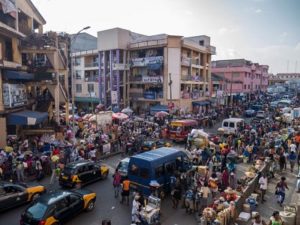Deloitte Forecasts Ghana’s Return to Macroeconomic Stability by 2025
Ghana’s economy is on track to regain macroeconomic stability by 2025, according to Deloitte’s “A Sneak Preview of 2025: What Lies Ahead?” report.

Ghana’s economy is on track to regain macroeconomic stability by 2025, according to Deloitte’s “A Sneak Preview of 2025: What Lies Ahead?” report.
The audit and advisory firm attributes this outlook to the government’s fiscal consolidation measures and debt restructuring efforts, which are beginning to yield results.
- Advertisement -
Deloitte projects Ghana’s economy to expand by 4.9% in 2024, with further growth of 5.1% forecast for 2025.
- Advertisement -
Deloitte highlights falling inflation, a more stable local currency, and reduced borrowing costs as key factors underpinning this recovery, alongside increased private consumption and investment activity.
Gold Sector to Drive Export Earnings
Ghana’s gold production is expected to climb 3% to 136 tonnes in 2025, up from an estimated 132 tonnes in 2024.
This rise will be supported by a $525 million expansion of operations at Asante Gold’s Bibiani and Chirano mines and the commencement of production at the Ahafo North gold project.
Elevated global gold prices, driven by accommodative monetary policies in developed economies such as the US and UK, are also expected to bolster export earnings. Ghana produced 128 tonnes of gold in 2023, positioning itself as one of Africa’s top producers.
Cocoa Sector Faces Headwinds
- Advertisement -
In contrast, Ghana’s cocoa sector continues to grapple with challenges, including the spread of the swollen shoot virus, smuggling, adverse weather, and volatile global commodity prices.
Production is projected to rise modestly to 527,000 tonnes in the 2025/2026 season, up from an estimated 500,000 tonnes in the 2024/2025 season.
However, the sector’s recovery remains fragile, if the challenges plaguing the sector are not addressed.
Risks to Growth
Despite the positive growth trajectory for the Ghanaian economy, Deloitte warns of significant downside risks to Ghana’s macroeconomic stability.
These risks include; commodity price volatility, currency instability, debt restructuring delays, infrastructure deficiencies, and social discontent over high living standards.
While Ghana’s near-term prospects are bolstered by its natural resource base and ongoing policy reforms, Deloitte emphasizes the importance of mitigating external and domestic risks to ensure a sustainable recovery.
The trajectory of global commodity prices and the government’s ability to maintain fiscal discipline will be crucial in determining Ghana’s economic future.
Source: norvanreports.com
- Advertisement -



